
Professor Stephani Hatch
Vice Dean for Culture, Equality, Diversity & Inclusion
- Professor of Sociology and Epidemiology
Contact details
Pronouns
she/her
Biography
Stephani joined King’s College London in December 2006 and leads the Health Inequities Research Group, working across sectors, locally and nationally, to deliver interdisciplinary research on inequities in mental health and across health and social care services with an emphasis on race at the intersection of other social identities. She has expertise in sociology and psychiatric epidemiology, using mixed quantitative and qualitative methods to study the impact of discrimination, social adversity, social determinants over the life course on mental health and multimorbidity. Her work integrates collaborative and inclusive approaches to knowledge production, dissemination and action across capacity building, education and training, impact strategies and research. She holds local and national policy advisory roles across the health and social care sector and voluntary and community sector. Much of Stephani’s work at King’s focuses on initiatives promoting and embedding more equitable policies, research culture, and equality, diversity and inclusion practices.
Stephani was appointed a Fellow of the Academy of Social Sciences in 2025. More about Stephani Hatch can be found in her profile piece published in The Lancet, titled 'Stephani Hatch: Rethinking Power in Health-Care Research.'
Stephani is Principal Investigator (PI) on the Wellcome Discovery Award funded, Collective Action for Race Equity in Health and Social Care (CARE-HSC) programme, launched in 2025. Led by researchers at the Institute of Psychiatry, Psychology & Neuroscience (IoPPN) and the Department of Global Health and Social Medicine at King’s College London, in collaboration with Black Thrive Global and international partners in the United States and Sweden, the programme aims to address structural inequalities by examining the systems, policies, and practices in health and social care that perpetuate racial inequities. This work builds on the Tackling Inequalities and Discrimination Experiences in Health Services (TIDES) study, funded by Wellcome (2017-2022) and used innovative quantitative and qualitative methods, including linked survey and health record data, as well as virtual reality methods to examine how biases and discrimination impact clinical interactions and treatment recommendations. The study was expanded in 2020 with funding from the Economic and Social Research Council (ESRC) as part of UK Research and Innovation’s rapid response to the COVID-19 pandemic, to utilise a participatory framework to identify mechanisms through which racial and ethnic inequalities in mental health and occupational outcomes are produced, maintained and resisted.
Stephani also currently co-leads the Marginalised Communities programme within the ESRC Centre for Society and Mental Health, focused on working in close partnership with communities that have often been ignored, to examine and disrupt structures maintaining social inequities in mental health. She is PI for the CONNECT study (CONtributions of social NEtworks to Community Thriving) which uses Participatory Action Research (PAR) to investigate social capital and networks as resources that benefit (or hinder) marginalised communities and their mental health. It focuses primarily on Black and other minoritised groups’ experiences at the intersection of gender, migration, and other social identities.
Additionally, Stephani co-leads the Narrowing Inequalities Platform within the UKRI Population Health Improvement (PHI-UK), Population Mental Health Consortium, bringing together 10+ partnerships across universities, local government, voluntary organisations and people with lived experience, to understand what can be done to prevent the onset of mental health problems, using insights from large-scale linked data. The consortium focuses on three challenge areas: children and young people, suicide and self-harm prevention, and multiple long-term conditions.
Stephani also co-founded the Health & Social Equity Collective in 2021 with funding from a King’s Together Infrastructure Award and Impact on Urban Health (part of Guy’s and St. Thomas’ Foundation). The co-developed Health and Social Equity Collective is comprised of local, national and international partners consisting of researchers, experts by experience, community leaders, policy makers, artists and health professionals responding to persistent social and health inequities. The HSE Collective is leading the Community Organised Research for Equity (CORE) project, funded by Impact on Urban Health, which supported community-driven population health initiatives. These projects addressed key priorities identified by communities within the London boroughs of Southwark and Lambeth.
These current projects build on Stephani’s work as co-PI of the South East London Community Health (SELCoH) study, one of the largest, most comprehensive UK studies of urban mental health and service use that provides much-needed data on ethnic minority and migrant populations, set in the boroughs of Southwark and Lambeth from 2008 to 2015.
Education and Training
- 2016 Senior Fellow, UK Higher Education Academy
- 2005 National Institute of Mental Health Postdoctoral Training Fellowship, Psychiatric Epidemiology, Columbia University, New York, NY, US
- 2002 PhD Sociology, National Institute of Mental Health/American Sociological Association Pre-Doctoral Fellow, University of Maryland, College Park, Maryland, US
- 1996 MA Sociology, Georgia State University, Atlanta, Georgia, US
- 1993 BA Psychology (Minor: Sociology), Indiana University, Bloomington, Indiana, US
Research Interests
- Population mental health
- Inequities in health and health services
- Mental health over the life course
- Health and social equity
- Workforce development
- Discrimination and other social adversities
- Mixed methods (quantitative and qualitative) and inclusive research approaches
Teaching
2021-present:
- Co-Director, King’s PhD in Mental Health Research for Health Professionals, KCL
2010-2021:
- Course Director and Module Lead, Integrated Academic Training, Applied Research Methods Course, Faculty of Life Sciences & Medicine and IoPPN, KCL
2010-present:
- Personal Tutor, Department of Psychological Medicine, IoPPN, KCL
Expertise and Public Engagement:
Stephani founded the Health Inequalities Research Network (HERON) in 2010, a public engagement network that promotes collaborative community approaches to knowledge dissemination, action and youth outreach. HERON engagement activities provided the foundation for the Health & Social Equity Collective.
Selected Current Boards include:
- NHS Race and Health Observatory, Chair of the Academic Reference Group and Board Member
- MQ Mental Health Sciences Council
- Pembroke House, Trustee
- Institute of Women and Ethnic Studies, Board Member, USA
Research

LGBTQ Mental Health Research Group
Investigating factors contributing to the mental health of lesbian, gay, bisexual, transgender and other sexual and gender minority individuals.

Tackling Inequalities and Discrimination Experiences in health Services (TIDES)
TIDES study investigates how discrimination experienced by both patients and healthcare practitioners may generate and perpetuate inequalities in health service
Project status: Ongoing

Health Inequities Research Group
Health Inequities Research Group is focused on delivering interdisciplinary research on inequities in mental health in marginalised communities and across health services with an emphasis on race at the intersection of other social identities.

Social science and Urban public health institute
Working with collaborators around the theme of urban public health

CONtributions of social NETworks to Community Thriving (CONNECT)
The CONtributions of social NETworks to Community Thriving (CONNECT) Study uses Participatory Action Research to investigate networks and wellbeing.
Project status: Ongoing
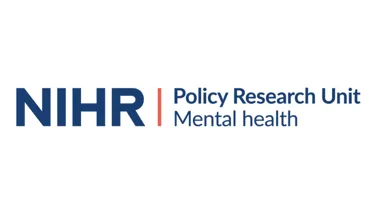
NIHR Policy Research Unit in Mental Health
The NIHR Policy Research Unit in Mental Health (MHPRU) at King's and UCL conducts rapid research to inform mental health policy.

IoPPN Virtual Reality Lab
The IoPPN Virtual Reality Research Lab (VR Lab) is a world-leading multidisciplinary group dedicated to VR based research, assessment and treatments to improve mental health, enhance well-being and promote resilience.

Population Mental Health Consortium
UK network to boost the role of research and the use of data to improve population health focused on children and young people, suicide and self-harm prevention and multiple long-term conditions.
News
Increased air pollution exposure during midlife may harm brain health as we age
A new study led by researchers from the Institute of Psychiatry, Psychology & Neuroscience (IoPPN) at King’s College London, has found that exposure to higher...

Professor Stephani Hatch appointed Fellow of The Academy of Social Sciences
Professor Hatch joins 63 other social scientists, including three colleagues from King’s College London in being welcomed to the fellowship this spring.

£4.7m Wellcome Discovery Award for new research into Race Equity in Health and Social Care
Researchers at the Institute of Psychiatry, Psychology & Neuroscience (IoPPN) and the Faculty of Social Science & Public Policy at King’s College London, in...

New £7M research investment to investigate population-based improvement of mental health
£7 million funding from UK Research and Innovation, has been awarded to lead partner King’s College London to establish a research theme in Population Mental...
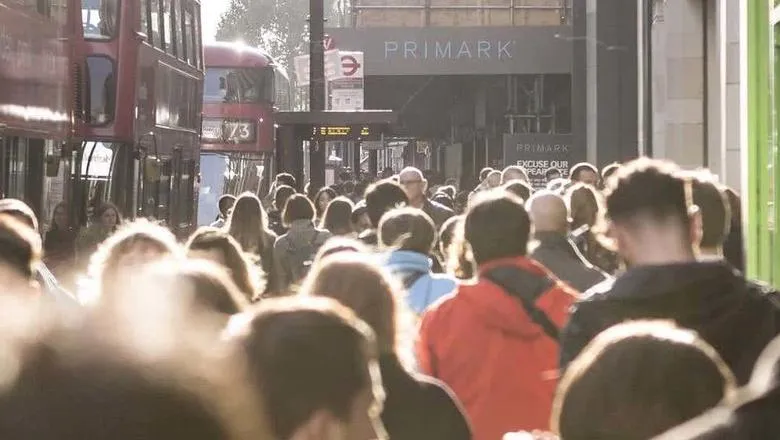
Study shows discrimination and ethnic inequalities among NHS staff during the pandemic
New research led by King’s College London, which surveyed over 4500 NHS staff in England, has found that staff from Black, Mixed and ‘Other’ ethnically...

A new generation of Inspiring Women at the IoPPN
28 new portraits of internationally recognised female professors at the Faculty have been added to IoPPN’s ‘Inspiring Women’ exhibition, celebrating the...

A Mentally Healthier Nation: support from ESRC Centre for Society and Mental Health
The new ‘A Mentally Healthier Nation’ report by the Centre for Mental Health has called for cross-cutting policy to increasing mental health. The report’s...

Exposure to air pollution is associated with increased use of psychiatric services in people with dementia
New research from the Institute of Psychiatry, Psychology & Neuroscience (IoPPN) at king's College London has found exposure to air pollution is associated...

PRiSM project explores religion, spirituality and mental health in Southeast London faith communities
The Perspectives on Religion and Spirituality in coping with Mental health (PRiSM) project, aims to understand the role of religion and spirituality in...
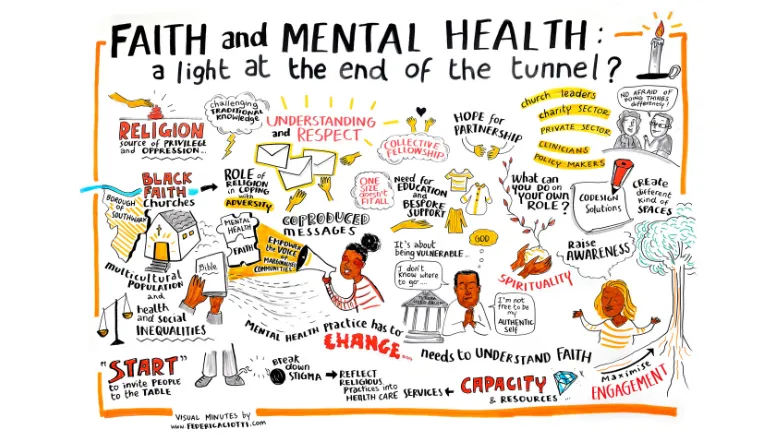
Professor Stephani Hatch receives standing ovation for inaugural lecture
Professor Hatch presented “Fighting for Health and Social Equity: Lessons from a southernplayalistic ATLien" on Thursday 30 March 2023 to a full house at the...
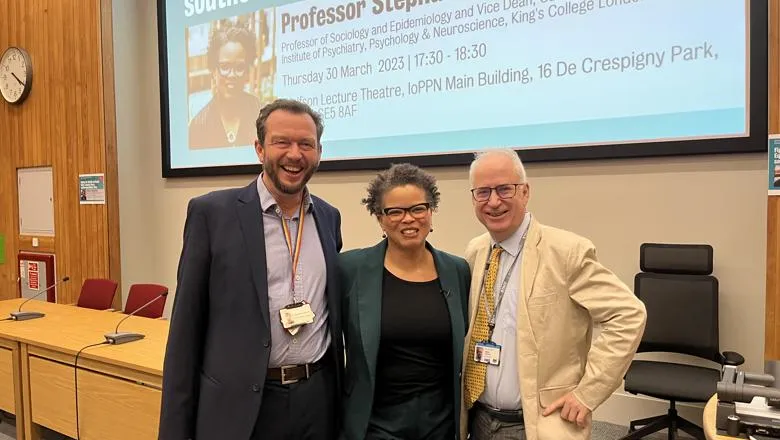
Events

Launch event: Theorizing the social in mental health research and action
What does a social perspective on mental health look like? And why does it matter? Join us as we explore these questions at our launch of the special issue...
Please note: this event has passed.
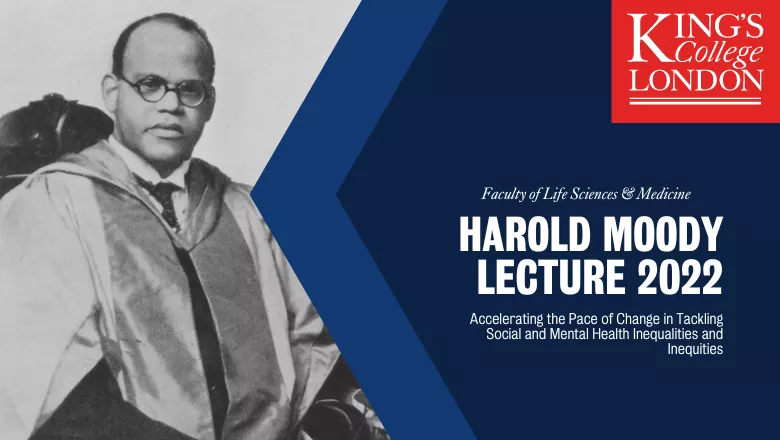
Harold Moody Lecture 2022
Professor Stephani Hatch on 'Accelerating the Pace of Change in Tackling Social and Mental Health Inequalities and Inequities
Please note: this event has passed.
Features
IoPPN Inaugural Lectures: 2022-2023
Inaugural lectures are given by newly arrived or promoted professors, who use the opportunity to introduce themselves, to present an overview of their own...

Pandemic impacts on mental health of young people: the REACH study
The REACH Study have published a series of reports on the impact of Covid-19 on adolescent mental health.

Research

LGBTQ Mental Health Research Group
Investigating factors contributing to the mental health of lesbian, gay, bisexual, transgender and other sexual and gender minority individuals.

Tackling Inequalities and Discrimination Experiences in health Services (TIDES)
TIDES study investigates how discrimination experienced by both patients and healthcare practitioners may generate and perpetuate inequalities in health service
Project status: Ongoing

Health Inequities Research Group
Health Inequities Research Group is focused on delivering interdisciplinary research on inequities in mental health in marginalised communities and across health services with an emphasis on race at the intersection of other social identities.

Social science and Urban public health institute
Working with collaborators around the theme of urban public health

CONtributions of social NETworks to Community Thriving (CONNECT)
The CONtributions of social NETworks to Community Thriving (CONNECT) Study uses Participatory Action Research to investigate networks and wellbeing.
Project status: Ongoing

NIHR Policy Research Unit in Mental Health
The NIHR Policy Research Unit in Mental Health (MHPRU) at King's and UCL conducts rapid research to inform mental health policy.

IoPPN Virtual Reality Lab
The IoPPN Virtual Reality Research Lab (VR Lab) is a world-leading multidisciplinary group dedicated to VR based research, assessment and treatments to improve mental health, enhance well-being and promote resilience.

Population Mental Health Consortium
UK network to boost the role of research and the use of data to improve population health focused on children and young people, suicide and self-harm prevention and multiple long-term conditions.
News
Increased air pollution exposure during midlife may harm brain health as we age
A new study led by researchers from the Institute of Psychiatry, Psychology & Neuroscience (IoPPN) at King’s College London, has found that exposure to higher...

Professor Stephani Hatch appointed Fellow of The Academy of Social Sciences
Professor Hatch joins 63 other social scientists, including three colleagues from King’s College London in being welcomed to the fellowship this spring.

£4.7m Wellcome Discovery Award for new research into Race Equity in Health and Social Care
Researchers at the Institute of Psychiatry, Psychology & Neuroscience (IoPPN) and the Faculty of Social Science & Public Policy at King’s College London, in...

New £7M research investment to investigate population-based improvement of mental health
£7 million funding from UK Research and Innovation, has been awarded to lead partner King’s College London to establish a research theme in Population Mental...

Study shows discrimination and ethnic inequalities among NHS staff during the pandemic
New research led by King’s College London, which surveyed over 4500 NHS staff in England, has found that staff from Black, Mixed and ‘Other’ ethnically...

A new generation of Inspiring Women at the IoPPN
28 new portraits of internationally recognised female professors at the Faculty have been added to IoPPN’s ‘Inspiring Women’ exhibition, celebrating the...

A Mentally Healthier Nation: support from ESRC Centre for Society and Mental Health
The new ‘A Mentally Healthier Nation’ report by the Centre for Mental Health has called for cross-cutting policy to increasing mental health. The report’s...

Exposure to air pollution is associated with increased use of psychiatric services in people with dementia
New research from the Institute of Psychiatry, Psychology & Neuroscience (IoPPN) at king's College London has found exposure to air pollution is associated...

PRiSM project explores religion, spirituality and mental health in Southeast London faith communities
The Perspectives on Religion and Spirituality in coping with Mental health (PRiSM) project, aims to understand the role of religion and spirituality in...

Professor Stephani Hatch receives standing ovation for inaugural lecture
Professor Hatch presented “Fighting for Health and Social Equity: Lessons from a southernplayalistic ATLien" on Thursday 30 March 2023 to a full house at the...

Events

Launch event: Theorizing the social in mental health research and action
What does a social perspective on mental health look like? And why does it matter? Join us as we explore these questions at our launch of the special issue...
Please note: this event has passed.

Harold Moody Lecture 2022
Professor Stephani Hatch on 'Accelerating the Pace of Change in Tackling Social and Mental Health Inequalities and Inequities
Please note: this event has passed.
Features
IoPPN Inaugural Lectures: 2022-2023
Inaugural lectures are given by newly arrived or promoted professors, who use the opportunity to introduce themselves, to present an overview of their own...

Pandemic impacts on mental health of young people: the REACH study
The REACH Study have published a series of reports on the impact of Covid-19 on adolescent mental health.

